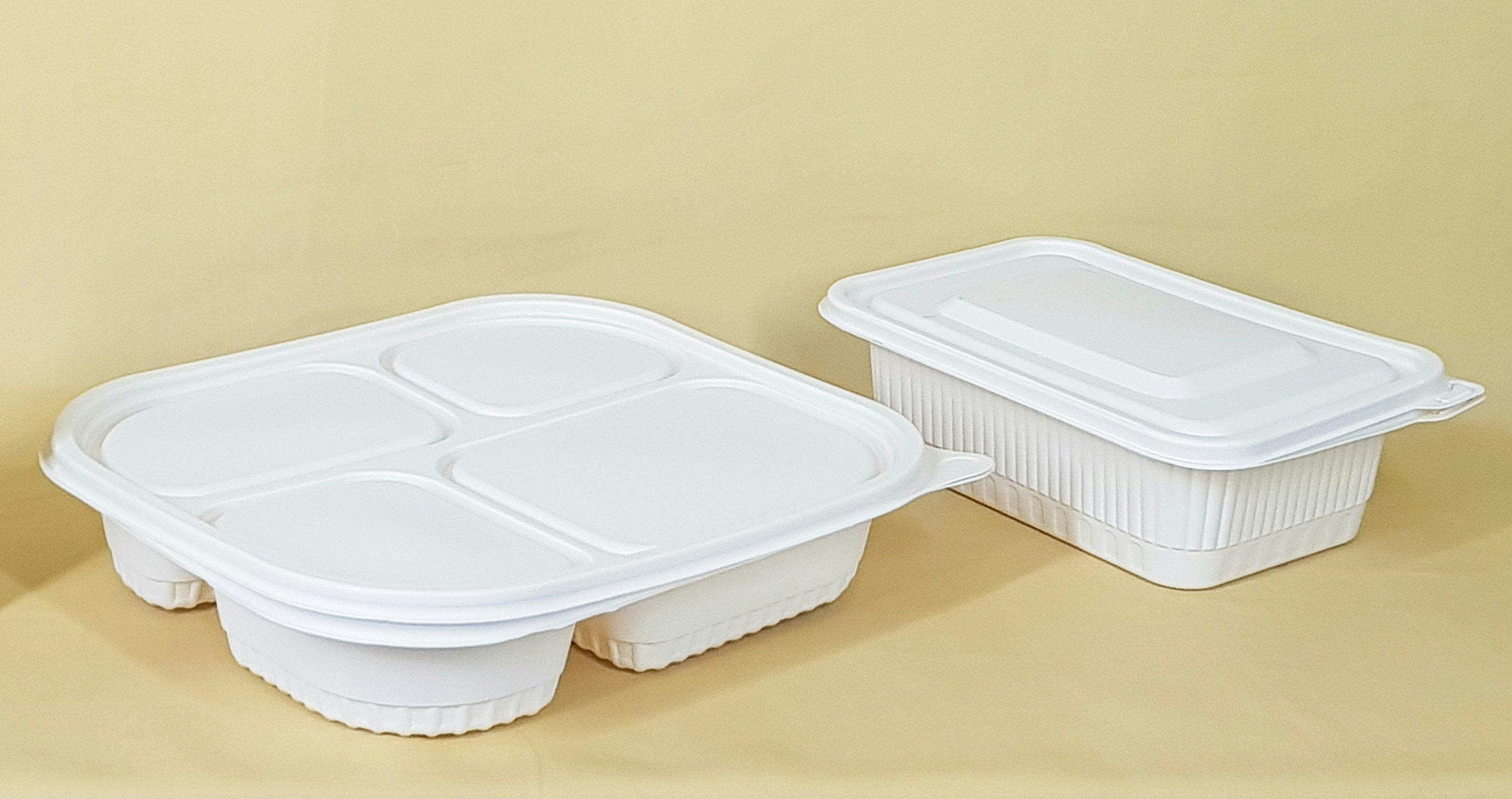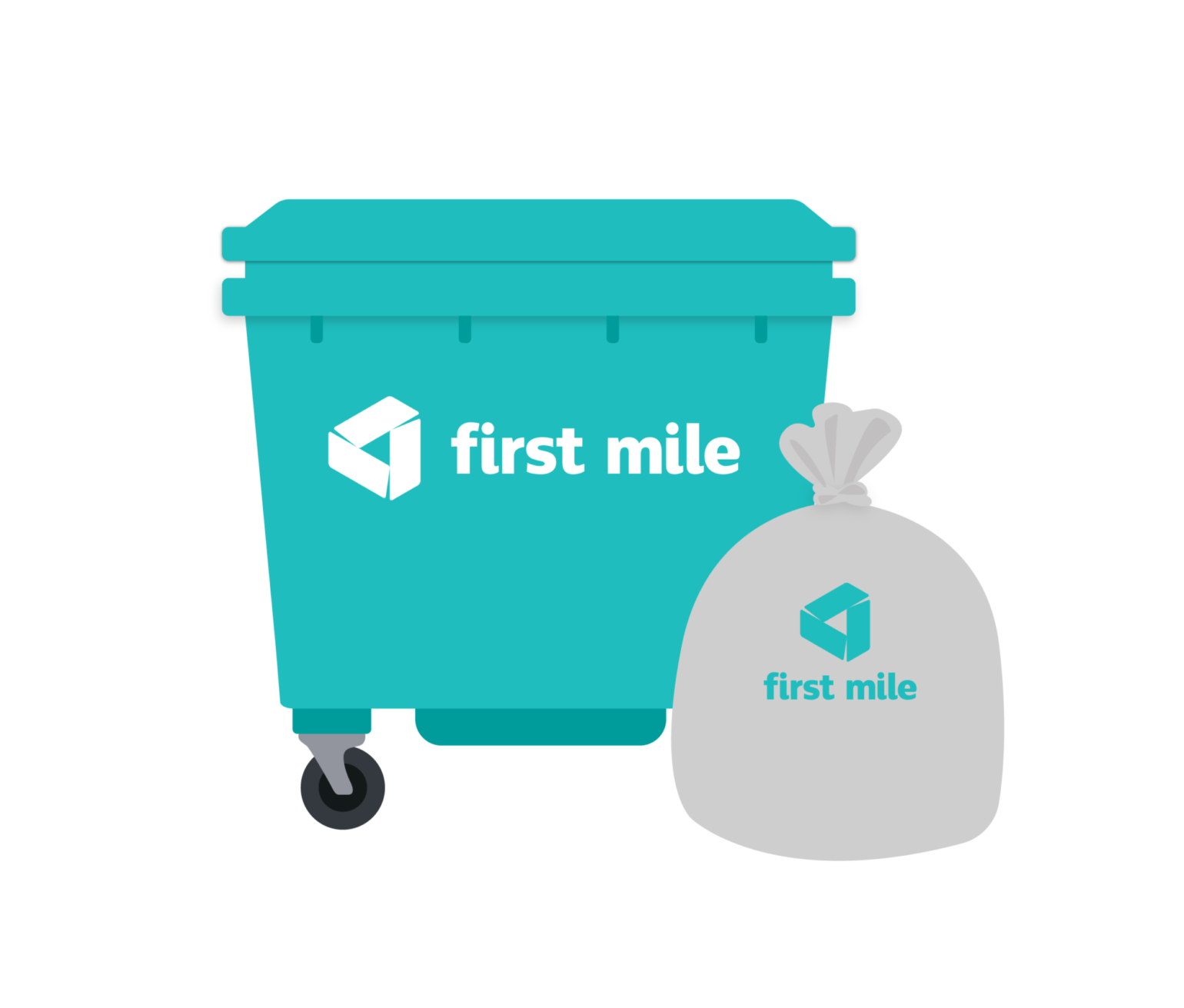Single-use plastics have been under the spotlight for years, with phased bans across the UK since 2020. From plastic straws to takeaway containers, more and more everyday items are being restricted to cut down on pollution and protect the environment.
Now, with the UK single-use plastics ban tightening further, businesses in hospitality, retail and offices face fresh responsibilities. It’s no longer just about avoiding new orders of banned products. You also need to think about what happens to existing stock, leftover items, and how you prove you’re disposing of them responsibly.
This guide will give you a clear overview of what’s banned, what’s coming next, and most importantly, what your business should do about it. You’ll also see how First Mile makes compliance simple, with safe, traceable collections that never end up in landfill.
What single-use plastics are now banned in the UK?
The ban on single-use plastics has been rolling out in stages, and 2025 has brought further big changes. To keep your business compliant, here’s a quick run-through of what’s already banned and what’s coming up.
Since October 2023 (England only)
- If you’re in England, you can no longer supply or sell:
- Plastic cutlery (this plastic cutlery ban includes forks, knives, spoons and chopsticks)
- Plastic balloon sticks
- Plastic plates, bowls and trays (unless they’re used as pre-packaged food containers)
- Polystyrene food containers and cups
- Plastic stirrers
These bans followed earlier restrictions on items like plastic straws and cotton buds back in 2020.
From June 2025 (UK-wide)
Across all parts of the UK, the disposable vapes ban means single-use e-cigarettes can no longer be sold or supplied. These items are especially tricky because they combine plastic, built-in lithium batteries and nicotine residue. They must be handled as hazardous/electrical waste and cannot be disposed of in ordinary bins.
Coming soon (expected 2026–27, UK-wide)
A plastic wet wipes ban is on the way, with an 18-month transition period already confirmed by the government. Now’s the time to look at alternatives so you’re not caught out.
Why these bans matter for businesses
These bans aim to reduce plastic pollution and protect the environment. For your business, this means more than just what you can (or cannot) sell going forward. You need to think about how you dispose of existing stock so you’re compliant, avoid penalties, and maintain good standing with customers who care about sustainability.

What your business needs to do now
If your business still has banned plastics in stock, you can’t keep using or selling them even if you bought them before the rules changed. The law applies to all supply and sale after the enforcement dates. That means leftover items, like plastic cutlery or disposable vapes, must be dealt with properly.
Simply throwing banned items in general bins isn’t an option, especially for things like vapes that contain batteries and hazardous materials. You have a duty of care to make sure all waste is disposed of safely and legally.
Here’s what to do:
- Audit your stock – Check cupboards, storerooms and supply chains for banned items.
- Identify affected products – From cutlery to containers, make a list so nothing slips through the net.
- Plan disposal – Put in place a safe route for getting rid of banned stock. For some items this will mean general waste, while others (like vapes) need specialist collection.
- Update purchasing – Stop reordering banned products and look for eco-friendly alternatives to single-use plastics such as compostable trays or reusable cutlery..
What happens if you don’t comply?
Failing to comply with the new rules can mean fixed penalties, prosecution, and reputational damage if inspectors find banned items on your premises. So, it’s simply not worth the risk.
Sorting out existing stock now means less stress later and shows your customers you’re serious about doing the right thing.
How to dispose of banned single-use plastics with First Mile
Once you’ve identified banned items in your business, the next step is making sure they’re dealt with safely and legally. First Mile provides flexible collection services that keep you compliant and ensure nothing ends up in landfill.
General plastics
Items such as plastic cutlery, plates, trays and containers can be included in your general waste or mixed recycling, depending on contamination. If they’re heavily soiled with food, they should go into general waste. Cleaner plastics can often be recycled. We’ll provide the right sacks, bins or containers to suit your space and the amount of waste you generate.
Disposable vapes
Disposable vapes are a different challenge. They fall under WEEE (Waste Electrical and Electronic Equipment) regulations because they contain batteries, electronics and nicotine. These items must never go in standard bins. First Mile offers a secure, specialist vape collection service to ensure everything is dismantled and recycled safely.
Wet wipes
With a UK-wide ban on wet wipes containing plastic expected in the next couple of years, now is a good time to assess how your business uses them. By planning disposal routes in advance, you’ll be ready when the rules come into force.
Traceable, zero-to-landfill service
Every collection with First Mile is backed up with a digital Waste Transfer Note in your online customer portal, so you can prove compliance at any time. And because nothing goes to landfill, even non-recyclable waste is recovered as energy.
First Mile makes disposal straightforward, traceable and sustainable, giving you peace of mind that your business is always doing the right thing.

How to stay compliant in 2025
Keeping up with changing plastics rules doesn’t need to be complicated. A few simple steps will keep your business compliant and give you confidence that everything is being handled properly:
Audit your stock
Go through cupboards, storerooms and supplier orders to spot any banned or soon-to-be-banned items.
Segregate waste
Keep banned plastics separate from other materials where possible. This avoids contamination and makes collection easier.
Book a collection
Use First Mile’s online portal to arrange safe, flexible collections that fit around your business.
Keep hold of important documents
Download and store your Waste Transfer Notes directly from the customer portal. These provide proof of compliant disposal if you ever need to show inspectors.
Monitor updates to regulations
Stay alert to future changes, such as the upcoming ban on wet wipes. Early planning will save time and stress later.
By following these steps, you can dispose with confidence knowing every item is handled responsibly, every collection is traceable, and every outcome is zero-to-landfill.

Preparing for upcoming bans and policy shifts
The single-use plastics crackdown doesn’t stop here. More policy changes are on the horizon, and preparing early will make compliance much easier.
In 2024, the UK government confirmed its intention to ban wet wipes containing plastic, with an 18-month transition period. This means the ban could come into effect as early as 2026–2027. Businesses that rely on wipes for cleaning and hygiene should begin reviewing suppliers and switching to plastic-free alternatives now.
In Scotland, proposals are being considered for a 25p charge on disposable coffee cups to reduce waste. While this hasn’t been rolled out yet, it’s a clear sign that further measures to cut down single-use items are on the way across the UK.
By planning now, you’ll not only avoid last-minute disruption, but you’ll also show customers and staff that your business is serious about reducing plastic waste. First Mile can support you every step of the way with collections, recycling and practical advice.
How can First Mile help your business?
The UK’s single-use plastics rules are tightening, and more bans are already on the way. For businesses, that means adapting quickly, finding reliable disposal routes, and planning ahead for the changes still to come.
The good news is that you don’t have to manage it alone. First Mile offers practical services to collect and recycle banned items, backed up with the tools you need to prove compliance and make reporting simple.
By acting now, you’ll save time, avoid risk, and show customers that your business is moving forward with sustainability at its heart. Discover how First Mile can support your business today.

FAQs
Can I still use up old stock if it’s already purchased?
No. Once the ban date passes, you cannot sell or supply banned items even if you bought them before the rules changed.
Can I put banned plastic items in regular recycling?
Not always. Some plastics, like clean trays or cutlery, may be recyclable. But many items are contaminated with food or made from materials that can’t be processed. These should go into general waste collections, where they’ll be diverted from landfill.
What do I do with leftover disposable vapes?
Vapes must be treated as electrical and hazardous waste. They can’t go in normal bins. Book a WEEE recycling collection to ensure they’re dismantled and recycled safely.
Is First Mile licensed to collect WEEE or hazardous waste?
Yes. We’re fully licensed to collect WEEE, batteries, vapes and other hazardous items, with specialist recycling routes for each.
How do I prove I’m disposing legally?
All collections come with downloadable Waste Transfer Notes in your customer portal—giving you traceable, on-demand proof of compliance.


